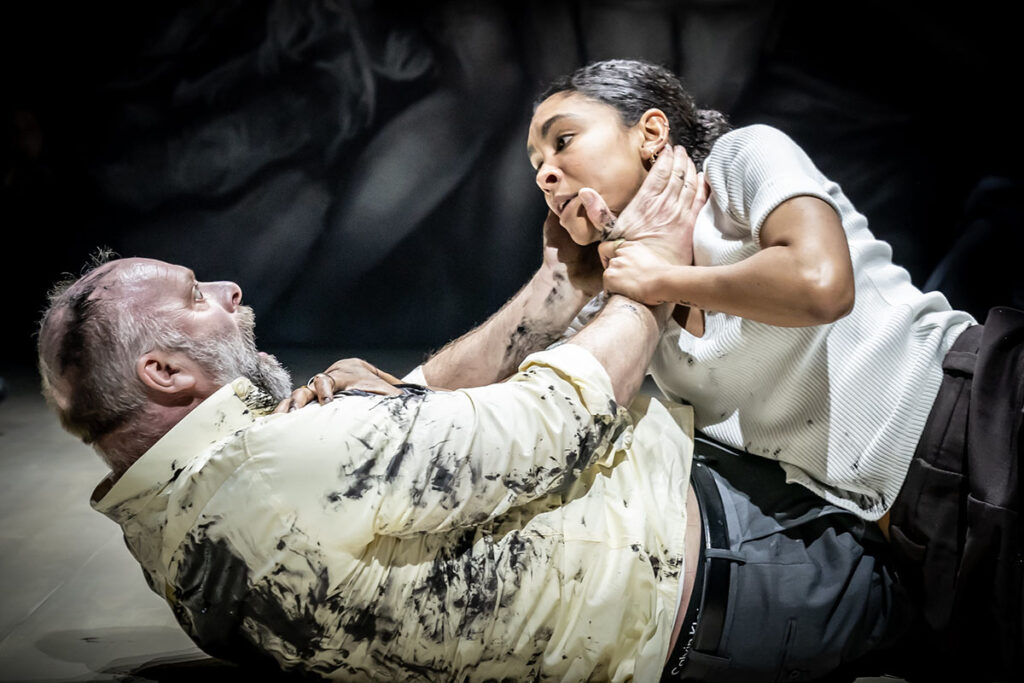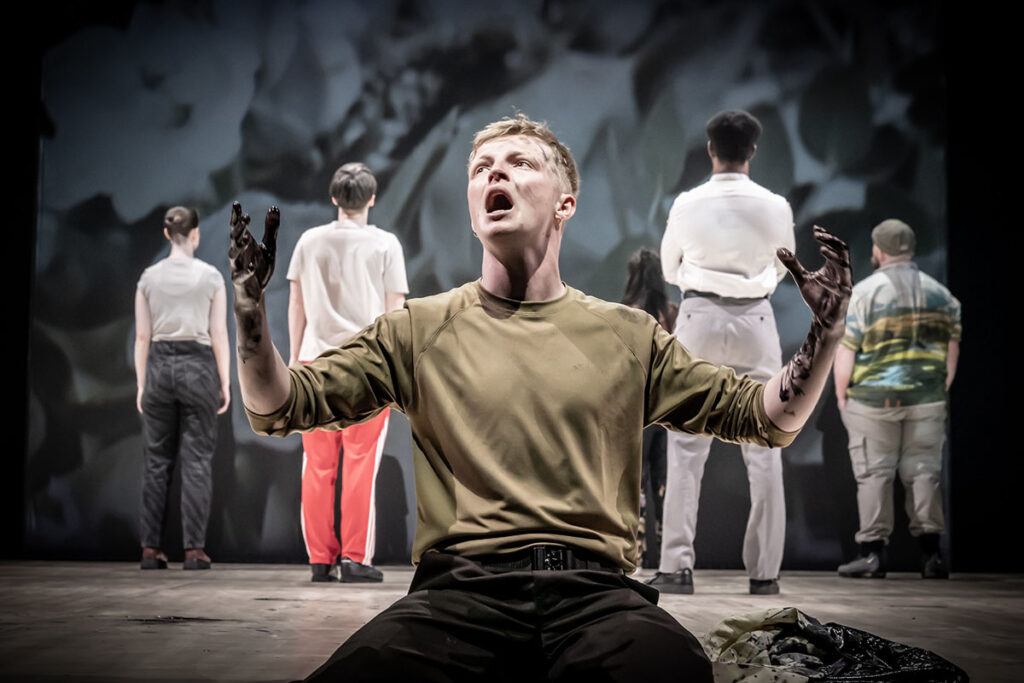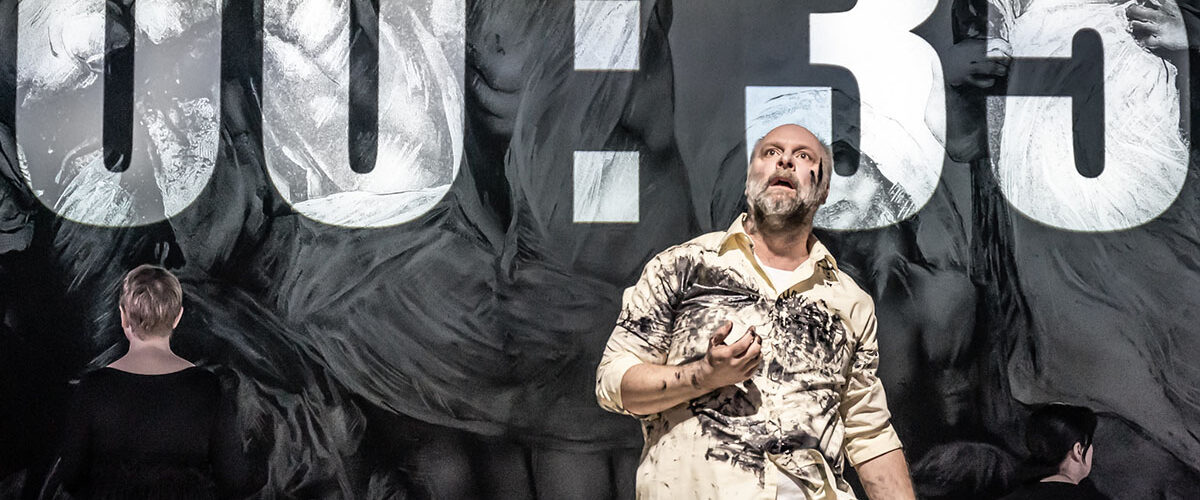It was 11-years-ago when I last saw the RSC perform Julius Caesar at The Lowry. What changes the world has seen since then! In this new production, Atri Banerjee brings us a very different production for a very different time. Yet Shakespeare’s play, that has captured imaginations with its universal themes of political tyranny, backstabbing, and bloodshed for more than 400 years, still holds the power to reflect those aspects of human nature that time doesn’t alter.
Here the action is set in a non-descript present, where soldiers wearing business suits plot in soul-less fluorescent lit offices, while the plebians, clothed in a ragtag of mis-matched items or sportswear skirt the action, their only power being to irritate rather than overthrow.
At each venue the cast is joined on stage by a community chorus – here made up of older women, dressed in black. The programme notes tell us these characters, who watch from the side-lines, make a political comment about marginalised identities. And perhaps it feeds into centuries of biases that these shadowy figures are viewed as witches, feeding the superstition that heeds Caesar: “Beware the Ides of March”.
Like Shakespeare’s work, this production is layered with symbolism, and modern audiences will take from it what they will. This audience leap of imagination is emphasised by Rosanna Vize’s stark set design, empty save for flood lighting and a heavy, central cube that is pushed by stagehands between scenes to change from a blank wall for projections to a hollow physical set. This works alongside Claire Windsor’s immersive soundscape to create an atmosphere of constant foreboding, even in seemingly triumphant times.
The play opens with Caesar’s celebration at victory over Pompey, but this setting could be an election victory – there are congratulations, jubilations, and dancing before the party descend into howling at the moon.
Caesar is powerful, almost too powerful, and must be overthrown. This basic premise we can understand. But in this portrayal, Nigel Barrett’s Caesar, with his portly physique, white beard and smiling visage, feels more Santa Claus than tyrant. Is his real crime to be about 30 years older than anyone else on the stage? Are actions being taken based on the dark threat of our current world – misinformation?
Perhaps he represents the demise of the old guard? Times are changing as the revolutionaries who bring him down are women: Thalissa Teixeira as Brutus and Annabel Baldwin in the role of Cassius.

Brutus wields the killing blow to Caesar believing she is making the world a better place, but is she? There are parallels to the Extinction Rebellion protests, with those slain not losing blood but seeping thick black oil. This adds another layer of symbolism but takes away some of the violence at the heart of the play. Those killed stand-up and retreat to the shadows – it’s as if they lose their power but not literally their lives.
William Robinson gives us an impassioned Mark Antony, but his famous ‘lend me your ears’ speech is weakened by a tracksuit-clad plebeian, flitting around the stage like a drug-crazed, 90s raver. Yes, the play has verbal interruptions, but it isn’t clear if this interpretation is meant to be comical or the irritant that it is.

Throughout the play Banerjee interprets roles across intersectional lines such as gender, race, class, and disability. Deaf actor, Jamal Ajala, who signs his lines as Brutus’ servant, Lucius, merges roles to give a new slant on a pivotal moment.
There is much for audiences to discuss, but in this, the production feels more intellectual than emotional. You could say Banerjee has ripped the heart out of politics and allowed us to see the chaos and corruption that’s left. But, while there is much to admire here, as Shakespeare knew all too well, great drama involves both the head and the heart.
The RSC’s Julius Caesar is at The Lowry, Salford from 20-24 June 2023.





